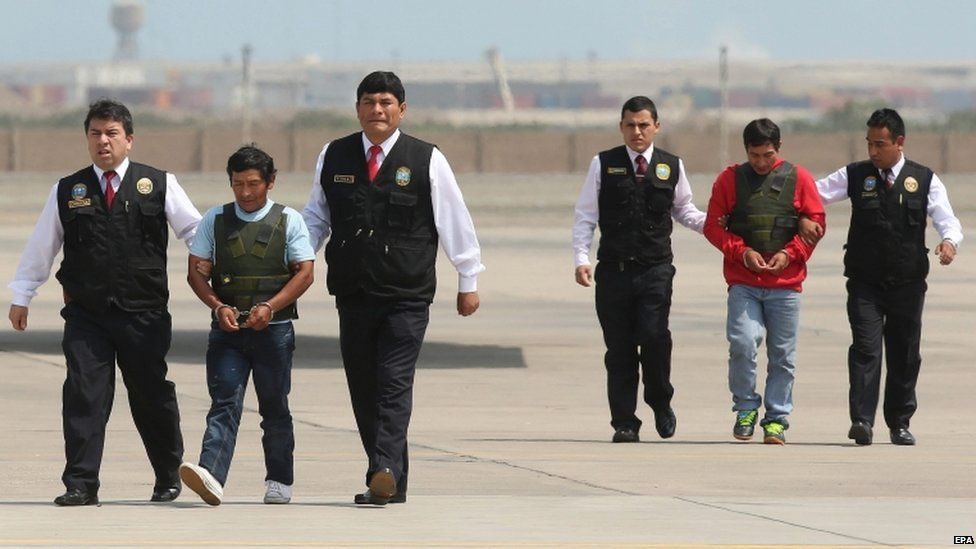Two Shining Path fighters captured in Peru
- Published

The Peruvian government has announced the capture of two leaders of the Maoist guerrilla group, Shining Path.
They were brought to the capital Lima by air from an isolated valley in the Amazon region.
The army said their column had stashed explosives and weapons near a pipeline connecting a gas field to the capital.
Last month the army freed 39 captives, mostly women and children who had been kept as slave labour by the group after being kidnapped.
Some of the captives said they had been seized some 30 years ago.
The defence ministry said 26 of them were children, some of whom had been born in captivity.
The victims said they were forced to work in fields.
The two fighters' column had been operating in the Shining Path heartland - a corner of the Peruvian Amazon crossed by three important rivers known as VRAEM (the Valley of the Apurimac, Ene and Mantaro rivers). It is Peru's largest cocaine-producing region.
Shining Path was largely dismantled after the capture of its leader, Abimael Guzman, in 1992.
Yet in the closed jungle of the Amazon the group has proved hard to destroy totally.
The government says it estimates there are still some 350 members of Shining Path left.
- Published28 July 2015
- Published10 April 2014